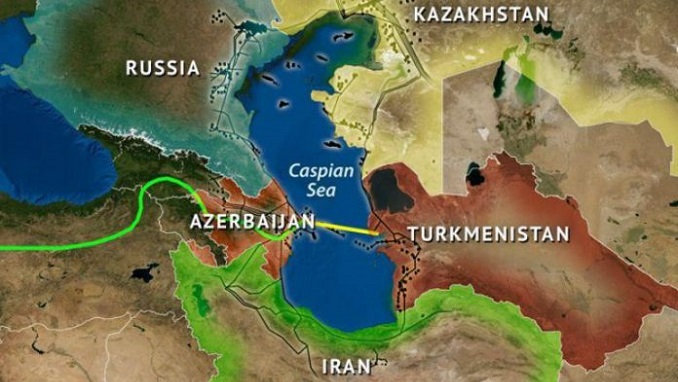The five states with shores on the Caspian Sea, including Russia, paved the way for more energy exploration and pipeline projects on Sunday, by principally agreeing how to divide up the potentially huge oil and gas resources of the sea, Reuters reported.
However, the dispute-causing delimitation of the seabed will require additional agreements between littoral nations, Iranian President Hassan Rouhani said.
The five littoral states — Russia, Iran, Kazakhstan, Turkmenistan, and Azerbaijan — have argued For almost three decades over how to divide the world’s biggest enclosed body of water.
And while some countries have pressed ahead with large offshore projects such as the Kashagan oilfield off Kazakhstan’s coast, disagreement over the sea’s legal status has prevented some other ideas from being implemented.
The dispute began with the fall of the Soviet Union which had had a clearly defined Caspian border with Iran. In negotiations with post-Soviet nations, Tehran has insisted on either splitting the sea into five equal parts or jointly developing all of its resources.
None of its neighbors have agreed to those proposals and three of them — Russia, Kazakhstan, and Azerbaijan — effectively split the northern Caspian between each other using median lines.
Azerbaijan, however, has yet to agree on how to divide several oil and gas fields with Iran and Turkmenistan, including the Kapaz/Serdar field with reserves of some 620 million barrels of oil.
The three states have tried to develop the disputed fields, but tensions have erupted, with the countries at times using warships to scare off contractors hired by other sides. As a result, none of the disputed projects has made much progress.
Speaking after the signing on Sunday, all five leaders praised it as a historic event but provided little detail about provisions on splitting the seabed.












